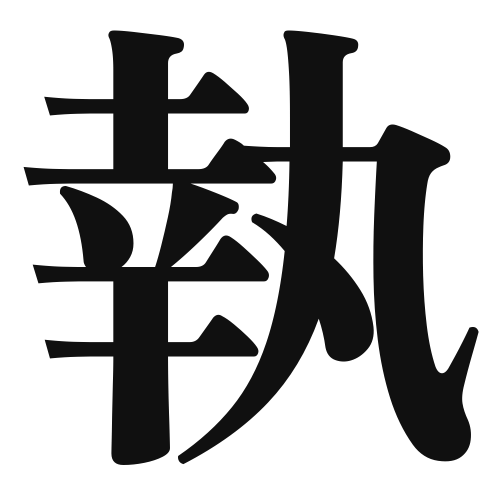1. Overview of Meaning
The kanji “執” (shuu) generally means “to hold,” “to grasp,” or “to persist.” It conveys a sense of attachment or dedication to something, whether it be an idea, a task, or a person.
2. Formation and Radical
Formation of the Kanji: The kanji “執” is a compound character (会意文字) that combines the elements of “土” (earth) and “持” (to hold). The “土” component suggests a foundation or ground, while “持” indicates the action of holding, together symbolizing the act of firmly holding onto something.
Radical: The radical of “執” is “土” (earth), which often relates to concepts of stability and grounding.
3. Examples of Usage
Common Words and Phrases: Some frequently used words that include “執” are:
- 執念 (shuunen) – obsession or persistence
- 執行 (shikkou) – execution or enforcement
Example Sentences in Daily Conversation:
- 彼はそのプロジェクトに執着している。
(He is very attached to that project.) - 法律を執行することは重要です。
(It is important to enforce the law.)
4. Synonyms and Antonyms
Similar Kanji: A similar kanji is “持” (ji), which also means “to hold.” However, “持” focuses more on the act of holding something physically, while “執” emphasizes a deeper emotional or mental attachment.
Antonyms: An antonym of “執” could be “放” (hou), which means “to let go” or “to release,” indicating a lack of attachment or a willingness to part with something.
5. Cultural and Historical Background
Relation to Japanese Culture: The concept of “執” is often associated with dedication and commitment in Japanese culture, reflecting values such as perseverance and loyalty.
Proverbs and Idioms: One relevant proverb is “執着は苦しみの元” (Shuuchaku wa kurushimi no moto), which translates to “Attachment is the source of suffering,” highlighting the balance between attachment and the need to let go in life.
